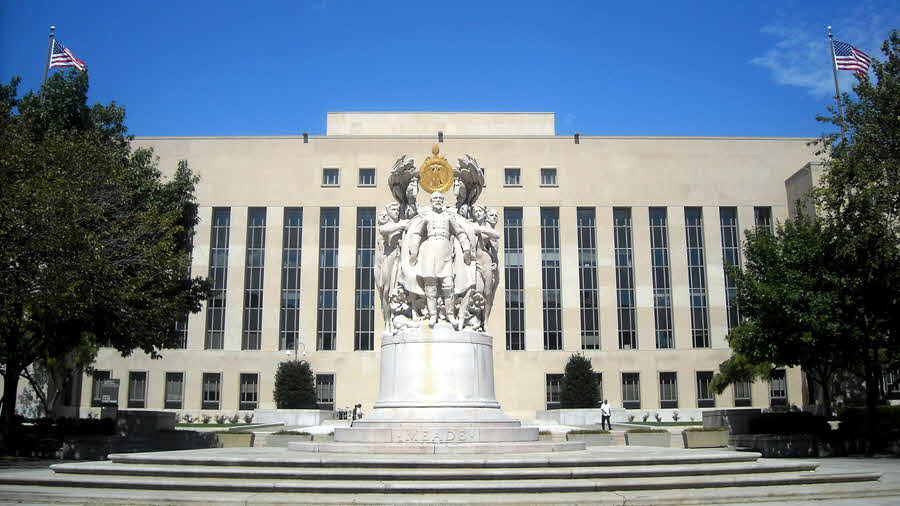FCC, Broadcasters: UHF Challenge Has No 'Standing' Legs to Stand On

The smarter way to stay on top of broadcasting and cable industry. Sign up below
You are now subscribed
Your newsletter sign-up was successful
The FCC, with an assist from a bunch of broadcasters including Sinclair and Tribune, have teamed up to tell a federal court that the groups challenging the FCC's return of the UHF discount did not have standing the bring the suit.
That came in comments to the U.S. Court of Appeals for the D.C. Circuit.
Related: Free Press to Court: Sinclair Is Exhibit A for UHF Discount Harms
After judges in oral argument suggested Free Press et. al had not provided the requisite documentation of harmed members, the group supplied testimonials to that effect.
But in a brief filed with the court Wednesday (May 16) in response to Free Press' supplement, the FCC said that the Supreme Court had long made clear that for an organization to establish standing, it must identify specific members "who had suffered cognizable, traceable, and redressable injuries," and that the court's signal that it would allow Free Press to provide that after the fact if Free Press could show that it "reasonably, but mistakenly, believed" its original filing "had sufficiently demonstrated standing."
The FCC said the petitioners had not done that. For one, it said, since petitioners did not identify any specific members, let alone what their injury might be, it "could not have reasonably thought it had demonstrated standing."
The FCC pointed out it had challenged standing, as had the broadcasters, Free Press et al. had failed to remedy that deficiency in reply briefs or oral argument.
The smarter way to stay on top of broadcasting and cable industry. Sign up below
And trying to use Free Press' supplement against it, the FCC said that its "belated submission of hundreds of pages of declarations, following a court order, demonstrates it was unreasonable for petitioners to have previously believed their standing was obvious."
As to Free Press' citation of the potential harms of a Sinclair-Tribune merger in their supplement, the FCC said that was simply "speculation about the effects of proposed broadcast acquisitions that are still awaiting Commission action." To be fair, Free Press also cited the impact of Sinclair-Bonten deal, which was approved last year.
Given that Free Press did not establish standing "at the time of the suit," or so the FCC argues, the court should dismiss the petition to review and reverse the UHF discount decision on the basis of lack of standing.
In their brief, Sinclair, Tribune, Fox, Univision, Trinity, ION and Nexstar, second-chaired the FCC's argument, summing it up this way:
"The Supreme Court and this Court long ago held that parties relying on the associational-standing doctrine must 'establis[h] that at least one identified member' has standing. It is likewise well-established that petitioners 'must produce actual evidence, not mere allegations, of facts that support [their] standing.' Petitioners failed to meet these clear requirements and had no reasonable basis for believing that the requirements did not apply."
They also agreed that the Sinclair-Tribune deal is "insufficiently certain or imminent to establish standing."
The insufficiently imminent point is because the FCC has yet to even restart its shot clock on the deal, after which it will put the latest deal out for several weeks of public comment before rendering a decision.
They also point out that the Bonten deal was not opposed by Free Press et al. "Petitioners cannot establish standing based on a transaction they did not oppose and cannot seek to undo because any alleged harm to Petitioners would be traceable to that transaction, not the FCC’s separate Reconsideration Order," they said. "Additionally, the FCC had not approved the Sinclair-Bonten transaction when Petitioners instituted this action, the “critical time for Article III standing analysis.”
Contributing editor John Eggerton has been an editor and/or writer on media regulation, legislation and policy for over four decades, including covering the FCC, FTC, Congress, the major media trade associations, and the federal courts. In addition to Multichannel News and Broadcasting + Cable, his work has appeared in Radio World, TV Technology, TV Fax, This Week in Consumer Electronics, Variety and the Encyclopedia Britannica.

